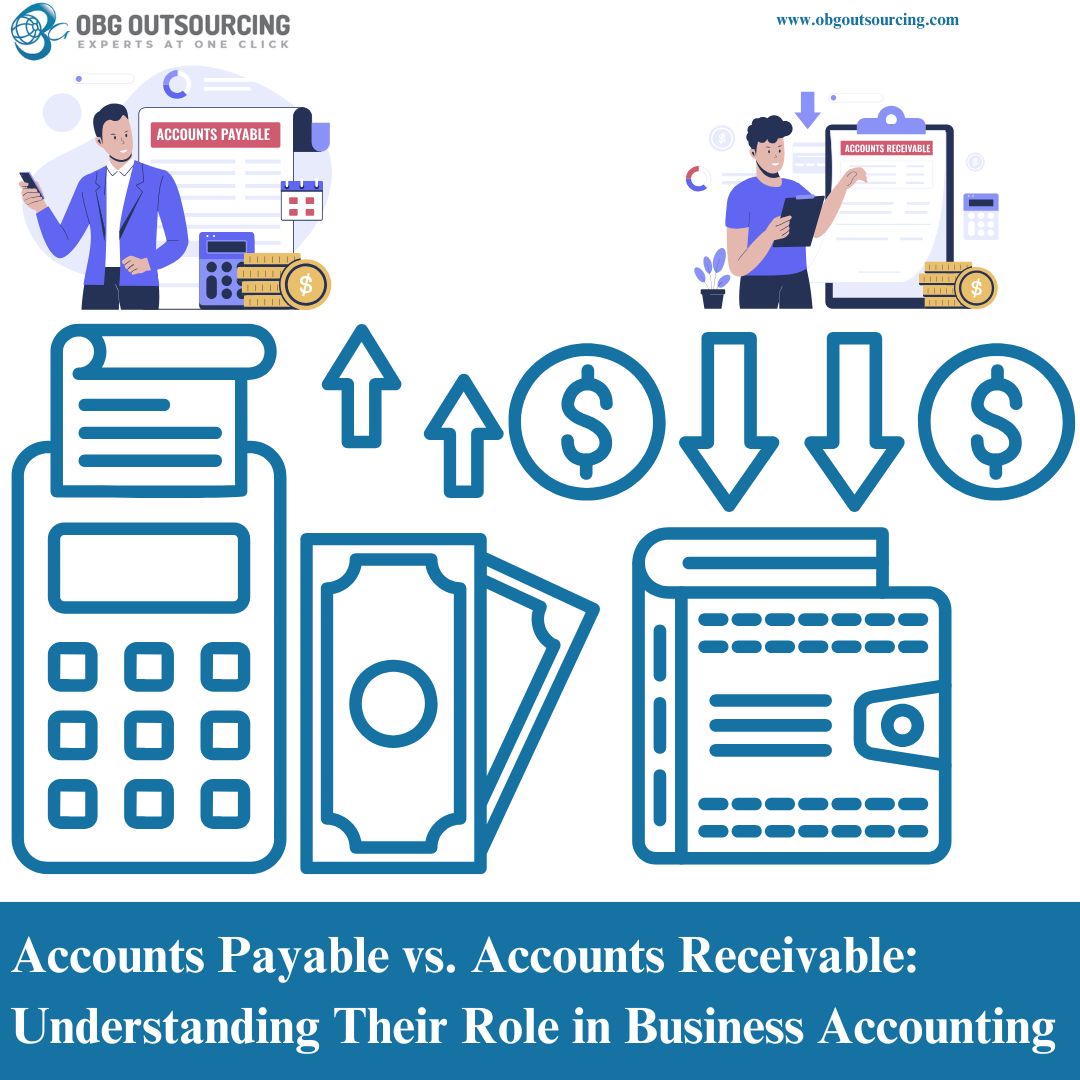What is Accounts Payable vs. Accounts Receivable?
Accounts payable (AP) and accounts receivable (AR) are two essential components of a company’s financial management. While both involve financial transactions, they serve opposite purposes in accounting and business operations.
Accounts Payable (AP): This refers to the amount a business owes to suppliers, vendors, or creditors for goods and services received but not yet paid for. It is recorded as a liability on the balance sheet and represents short-term financial obligations.
Accounts Receivable (AR): This represents the money that customers owe to a business for products or services sold on credit. It is recorded as an asset on the balance sheet since it is expected to be received in the future.
Proper management of both AP and AR ensures a healthy cash flow, prevents payment delays, and maintains financial stability for a business.
How Accounts Payable and Accounts Receivable Work in Accounting
1. Accounts Payable (AP) in Accounting
Businesses purchase goods and services from vendors and suppliers on credit. Instead of paying immediately, they record these amounts under accounts payable. The payment is due within a set period, depending on the agreed terms.
Example: A business orders office supplies worth $5,000 from a vendor with a 30-day payment term. The amount will be recorded under accounts payable and settled before the due date.
Accounting Entries for AP:
When the invoice is received:
Debit: Office Supplies Expense (or Inventory)
Credit: Accounts Payable
When the payment is made:
Debit: Accounts Payable
Credit: Cash or Bank
2. Accounts Receivable (AR) in Accounting
When a business sells products or services on credit, the amount due from the customer is recorded as accounts receivable. This amount is collected over a defined period, depending on the credit terms.
Example: A business provides digital marketing services worth $7,000 to a client and issues an invoice with a 60-day payment term. The amount remains in accounts receivable until the payment is received.
Accounting Entries for AR:
When an invoice is issued:
Debit: Accounts Receivable
Credit: Sales Revenue
When payment is received:
Debit: Cash or Bank
Credit: Accounts Receivable
Importance of AP and AR in Business Operations
1. Cash Flow Management
Managing accounts payable and accounts receivable effectively ensures a steady flow of cash, allowing businesses to pay expenses and reinvest in growth. Late payments or overdue receivables can lead to cash shortages.
2. Business Credit and Supplier Relationships
Timely payment of AP helps businesses maintain good credit scores and strong relationships with vendors, leading to better terms and discounts.
3. Revenue and Profitability
Efficient AR management ensures that businesses receive payments on time, reducing outstanding debts and improving financial health.
4. Financial Reporting and Decision-Making
AP and AR affect the financial statements of a business. Proper record-keeping helps in accurate financial reporting and strategic decision-making.
5. Compliance and Taxation
Both AP and AR are crucial for tax calculations and financial audits. Accurate tracking of transactions ensures compliance with tax regulations.
How OBG Outsourcing Can Assist with AP and AR Management
Managing accounts payable and receivable can be time-consuming and complex. OBG Outsourcing provides expert financial services to ensure efficient AP and AR management, allowing businesses to focus on growth.
Our Accounts Payable Services Include:
Invoice processing and verification
Vendor payment scheduling and management
Expense tracking and categorization
AP reconciliation and reporting
Fraud prevention and compliance monitoring
Our Accounts Receivable Services Include:
Customer invoice generation and tracking
Payment follow-ups and collections
Cash application and reconciliation
AR aging reports and analysis
Bad debt management and recovery
Why Choose OBG Outsourcing?
Experienced Financial Professionals: Our team consists of skilled accountants with expertise in AP and AR management.
Advanced Technology Integration: We work with QuickBooks, Xero, Sage, and NetSuite for efficient financial management.
Cost-Effective Services: Outsourcing your AP and AR functions helps reduce administrative costs while improving accuracy.
Timely Payments and Collections: We ensure vendors are paid on time and customers settle their dues within agreed terms.
Improved Cash Flow Management: We help businesses maintain a positive cash flow by balancing payables and receivables effectively.
Conclusion: Strengthen Your Business Finances with Professional AP and AR Management
Proper management of accounts payable and accounts receivable is essential for maintaining a healthy cash flow, financial stability, and business growth. Mismanagement of either can lead to financial strain, strained supplier relationships, and missed revenue opportunities.
By outsourcing AP and AR functions to OBG Outsourcing, businesses can improve efficiency, accuracy, and profitability while reducing administrative burdens. Our team of experts ensures that your financial records are up-to-date, payments are processed on time, and collections are effectively managed.
 USA
USA UK
UK Australia
Australia UAE
UAE Canada
Canada

_(7).jpg)
_(6).jpg)


_(5).jpg)
.jpg)
_(4).jpg)
_(1).jpg)
_(2).jpg)
.png)